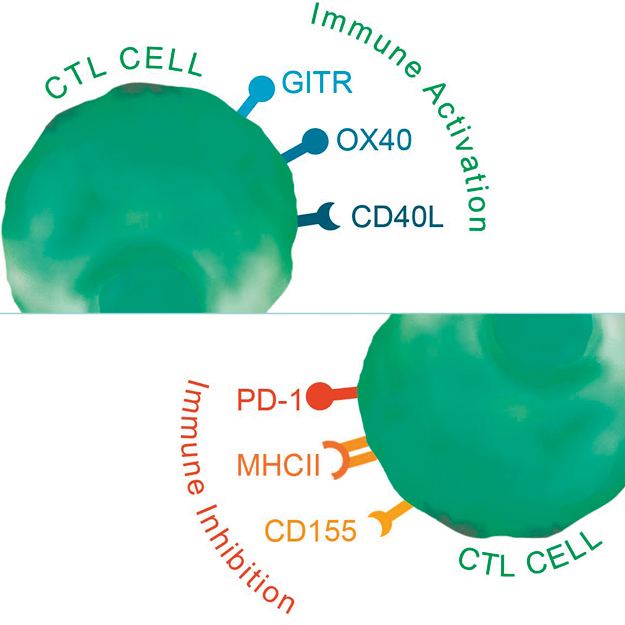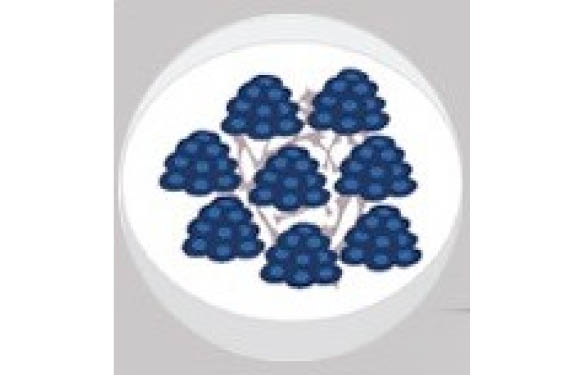In the last few decades, in the field of Drug Discovery, Immunotherapy has gained more and more importance for the treatment of various diseases and in particular for certain types of cancer. Based on inducing, enhancing or suppressing an immune response, this therapeutic manipulation has led to promising clinical results.
Major regulators of Immune activation, Immune checkpoints play a key role in maintaining immune homoeostasis and preventing autoimmunity. However in some cancers, these checkpoints can be used to avoid any activation of the immune response against cancer cells. Immunotherapies based on targeting immune checkpoint pathways in Drug Discovery, have already led to the development of promising molecules (Nivolumab, Pembrolizumab…) tested in clinical trials and approved, which are giving new hope for cancer treatments.
Nevertheless, scientists face some challenges in Immune checkpoint research, such as resistance to treatment, and the complexity of the Immune system and tumour microenvironment.
To rise up to all these challenges, Drug Discovery is expanding beyond essential biochemical assays to include cellular assays. Biochemical assays will allow you to identify drug candidates able to impact the interaction between your ligand-receptor target. Cellular assays will then complement and confirm your biochemical results by providing more physiological outcomes in a cellular context, with the functionality of the whole cell signalling pathway. This allows, for example, identification of an agonist vs antagonistic effect of your candidate

To help researchers along this way, BPS Bioscience have developed a combination of Biochemical and Cell based assays tools for screening and validating new molecules against immune checkpoint pathways.

More specifically, BPS Bioscience have developed Luciferase cell based reporter assays to identify new drugs candidate over several human Immune checkpoints and enzymatic pathways:
- PD-1:PD-L1 – Programmed Cell Death 1
- TIGIT:CD155 – T-Cell Immunoreceptor with Ig and ITIM domains
- GITR:GITRL – Glucocorticoid-induced TNFR Related protein
- OX40:OX40L – TNFRSF4, CD134
- CD40:CD40L – Cluster of Differentiation 40, TNFRSF5, Bp50
- LAG3:MHCII – Lymphocyte-Activation Gene 3
To get more insights on these Immune Checkpoint cell based assays, don’t hesitate to download the poster “Methods for Drug Discovery Through Biochemical and Cell Based Assays for Immunotherapy Checkpoint Activators and Inhibitors” presented by BPS Bioscience at the Immuno-Oncology Summit in Boston this year (2017).
Finally, the use of an engineered Cell based assay will provide researchers a more accurate and comprehensive approach on Immune Checkpoint research. The combination with a Biochemical assay will increase the rate of success for identifying and developing the next generation of drug treatment candidate.
In Immunotherapy research fields, the BPS Bioscience offer is broader than this six cell lines. Reporter cell line and Biochemical assay are also available for many more Immune checkpoint of interest, such as f: CD155 / IDO1-IDO2 / CD27…..
So please visit our Immunotherapy Biochemical assay and Reporter cell line to find the solutions corresponding to your expectations to screen and discover new interesting hits.
For more informations you can contact your local tebu-bio office and also read our previous posts on Cancer Immunotherapy and Immune checkpoint drug discovery
You might also like to take a look at our other solutions in the field of Drug Discovery:



